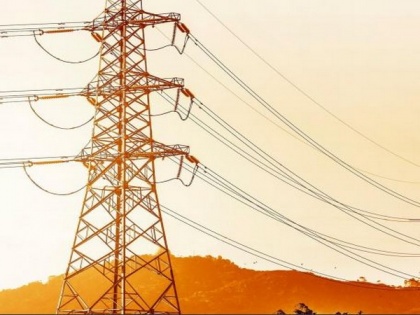India's discom reform plan to benefit gencos in long term: Fitch
By ANI | Published: February 2, 2021 12:04 PM2021-02-02T12:04:56+5:302021-02-02T12:15:02+5:30
India's proposed plan to improve operations and finances of state-owned distribution companies (discoms), the weakest link in power supply value chain, will help mitigate cash flow stress observed in rated power generation companies (gencos) over time, according to Fitch Ratings.

India's discom reform plan to benefit gencos in long term: Fitch
India's proposed plan to improve operations and finances of state-owned distribution compes (discoms), the weakest link in power supply value chain, will help mitigate cash flow stress observed in rated power generation compes (gencos) over time, according to Fitch Ratings.
The 41 billion dollar plan intends to trim electricity losses, gradually narrow discoms' cost-revenue gap, improve the reliability and quality of power supply, and promote more sustainable competition in the sector over FY22 to FY25 (fiscal years ending March 2022-2025).
Fitch said discoms are saddled with huge accumulated losses due to a combination of crippling debt, expensive power, technical and commercial losses, and less-than-commensurate increases in tariffs.
The government in 2015 introduced a voluntary rehabilitation scheme, Ujwal Discom Assurance Yojana (UDAY), to turn around distressed discoms. While UDAY was more comprehensive than previous packages, it primarily drove debt restructuring of discoms without significant sustained reduction in technical and commercial losses, and the cost-revenue gap.
The pandemic aggravated the discoms' difficulties due to the fall in electricity demand from higher-paying commercial and industrial customers, payment concessions, and delay in cash collections.
The government's liquidity support through Rs 1.2 lakh crore of conditional concessionary loans alleviated the situation. However, adequate tariff hikes and reduction of losses are essential for a sustainable structural improvement of the state discoms.
To this end, a holistic approach that includes infrastructure updates, smart metering, demand-side management and regular tariff revisions will go further, said Fitch.
Typically, the rating on a power generation company's debt instrument is capped by the credit quality of its revenue counterparties. While Fitch does not rate state-owned discoms, most of the rated renewable power portfolios diversify away the counterparty risk through exposure to multiple states.
In other instances, where a rated company is a significant power producer in its region, Fitch considers the counterparty risk to be systemic in nature. The extended payment cycles of discoms put pressure on the working capital of generation compes, weakening their cash flows available for debt servicing.
Discoms have also tried to renegotiate power purchase agreements to capitalise on falling solar and wind tariffs.
In its project finance ratings, Fitch considers the impact of exposure to state discoms as a possible liquidity stress as they have a history of payment delays. As a result, Fitch expects associated portfolios to meet a higher threshold to achieve the same rating as other projects with strong counterparties, all else being equal.
Hence, Fitch bases credit assessments on the indicative debt service coverage ratio thresholds applicable to merchant projects instead of the ones for fully contracted projects while the cash flows are evaluated based on the contracted prices, which is variation from its renewable energy project rating criteria.
A mengful improvement in discoms' economics will benefit power generation compes via higher utilisations and timely clearance of dues.
While renewable players benefit from 'must-run' status in India, thermal power plants have suffered part curtailment and lower capacity utilisation driven primarily by stressed discoms, which are unable to buy electricity because of their weak financial positions.
( With inputs from ANI )
Disclaimer: This post has been auto-published from an agency feed without any modifications to the text and has not been reviewed by an editor
Open in app